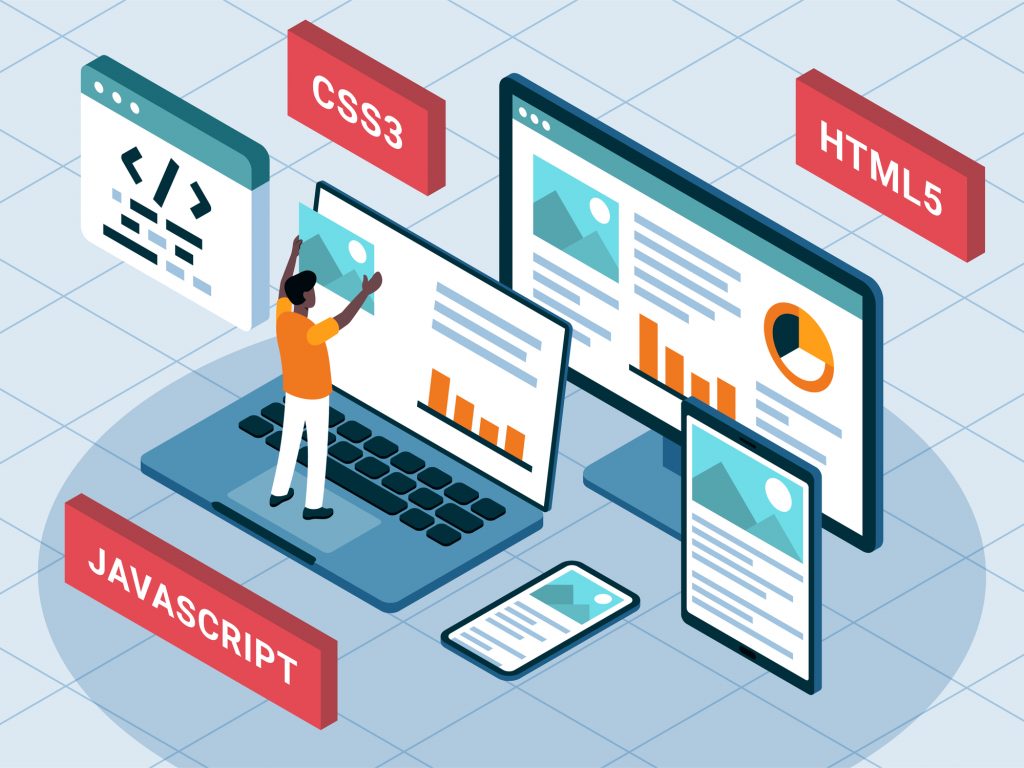The Importance of Relevant IT Skills in Today’s Job Market
In the ever-evolving landscape of the technology sector, the demand for relevant IT skills has risen sharply among employers. This change underscores a crucial shift from traditional educational pathways towards a more robust emphasis on skill acquisition tailored to real-world applications. As industries increasingly adopt innovative technologies, capabilities that align closely with current market needs take precedence over theoretical knowledge.
The rapid pace of technological advancement often leads to a situation where specific skills may become obsolete before a degree can be completed. For instance, programming languages and software tools can differ dramatically even within a short project timeline. As a result, professionals must engage in lifelong learning to remain competitive. Employers are recognizing this necessity, fostering an environment where hands-on experience and adaptability are regarded as highly as formal qualifications.
Moreover, the concept of ‘skills over degrees’ is gaining traction. Companies are increasingly prioritizing candidates who possess relevant competencies and practical experience, regardless of their formal educational background. This trend illustrates a growing recognition of the fact that successful job performance is often determined more by one’s ability to apply knowledge effectively than by academic accolades. Employers increasingly favor applicants who can demonstrate their capabilities through projects, internships, or real-world problem solving.
Furthermore, the integration of soft skills, such as communication and teamwork, into the skillset is paramount. Technical expertise complemented by interpersonal skills allows professionals to navigate complex workplace dynamics and collaborate effectively within diverse teams. Hence, the future job market will likely place a strong emphasis on a blend of hard and soft skills geared towards relevant IT applications.
Overall, the importance of focusing on relevant IT skills in today’s job market cannot be overstated. Keeping pace with technological advancements while honing practical abilities will be essential for individuals aspiring to thrive in the competitive technology landscape.
Identifying Key IT Skills: What Matters Most
In today’s rapidly evolving technological landscape, acquiring relevant IT skills is paramount for professionals seeking to thrive in various sectors. Among these skills, programming languages hold a significant position. Languages such as Python, Java, and JavaScript are commonly demanded across industries due to their versatility and effectiveness in developing applications, websites, and software solutions. Proficiency in these programming languages enables individuals to create scalable and efficient systems, making the average salary for skilled programmers quite attractive, often ranging from $70,000 to $130,000 annually, depending on experience and expertise.
Another critical area of focus is cybersecurity. As businesses increasingly rely on digital systems, the necessity for cybersecurity expertise has surged. Professionals equipped with knowledge of cybersecurity essentials can safeguard sensitive information and mitigate risks associated with cyber threats. Skills in this domain include understanding encryption techniques, security protocols, and incident response strategies. Given the escalating frequency of cyber attacks, average salaries in cybersecurity roles can vary widely, from $80,000 to over $150,000, reflecting the high demand for skilled personnel in this field.
Cloud computing has also emerged as a pivotal skill set in the IT sector. With companies migrating to cloud-based services for improved efficiency and scalability, familiarity with platforms such as Amazon Web Services (AWS), Microsoft Azure, and Google Cloud is invaluable. Professionals with cloud computing capabilities can design and manage scalable systems that support organizations’ growth. The average annual salary for cloud engineers typically ranges from $100,000 to $150,000, highlighting the financial benefits of obtaining skills in this area.
Additionally, data analysis has become increasingly essential as organizations seek to leverage data for strategic decision-making. Skills in data manipulation, statistical analysis, and data visualization are vital for interpreting datasets and deriving actionable insights. Professionals adept at these competencies can expect salaries between $70,000 and $120,000, depending on their experience level and the complexity of their roles. By focusing on these key IT skills, individuals can align their education with current industry demands, ensuring they remain competitive in the job market.
Real-World Case Studies: How Relevant Skills are Applied
In the dynamic landscape of information technology, the application of relevant skills in real-world settings proves essential for achieving business objectives. Several case studies exemplify how focused expertise can lead to notable impacts across various sectors, notably healthcare, finance, and technology startups.
One compelling example is from the healthcare sector, where the integration of data analytics has transformed patient care. A prominent hospital implemented a data analytics platform to track patient outcomes post-surgery. By employing data scientists who utilized predictive analytics, the hospital identified risk factors and optimized post-operative protocols, resulting in a 20% reduction in readmission rates. This case not only demonstrates the impact of specialized IT skills but also highlights the importance of tailoring expertise to address specific challenges within the industry.
In finance, a fintech startup utilized machine learning algorithms to enhance fraud detection. By focusing on relevant skills in artificial intelligence, the company developed a system capable of analyzing transaction patterns in real-time, thereby increasing the accuracy of fraud detection by over 30%. An industry expert noted, “The ability to harness data through machine learning is crucial for innovation in the financial sector, especially in building trust with our clients.” This illustrates how targeted IT skills can resolve critical issues while driving business success.
Similarly, in the realm of technology startups, agile project management has proven vital. A software startup adopted agile methodologies to transition its product development cycle from traditional to modern practices. By utilizing skilled project managers who understood relevant agile frameworks, the company significantly reduced its time-to-market for new features, fostering a culture of continuous improvement. This case shows how the implementation of pertinent skills can enhance operational efficiency and maintain a competitive edge.
These case studies collectively underscore the importance of applying focused IT skills to solve pressing issues. By leveraging expertise tailored to specific environments, organizations can achieve significant advancements and operational success in their respective fields.
Strategies for Effective IT Education Without Excess
In today’s rapidly evolving technological landscape, it becomes imperative for both educators and learners to adopt strategies that ensure IT education remains relevant and effective. One of the most beneficial approaches is the implementation of project-based learning (PBL). This method promotes hands-on experiences where students engage in real-world projects that align closely with industry needs. Through PBL, learners can develop critical problem-solving skills and gain practical experience, making them more employable and adept at handling challenges in their future careers.
Furthermore, fostering strong collaborations with industry partners serves as another pivotal strategy. By partnering with businesses, educational institutions can create opportunities for students to work on actual projects, gaining invaluable insights directly from the field. This collaboration not only enriches the curriculum by integrating current industry standards but also opens pathways for internships and job placements. Such connections bridge the gap between theoretical knowledge and practical application, ultimately ensuring that education aligns with market demands.
Another effective technique is the strategic use of online resources. Platforms such as MOOCs (Massive Open Online Courses) and web-based tutorials provide learners with flexible, diverse avenues to supplement their education. These resources can be tailored to match individual learning paces and interests, allowing students to focus on acquiring specific IT skills relevant to their career aspirations. Combining this with classroom instruction enhances the learning experience and overall educational effectiveness.
Lastly, creating an environment that encourages continuous learning and skill adaptation is crucial in the field of information technology. This mindset empowers learners to stay updated with emerging trends and technologies, fostering resilience in an ever-changing industry. By emphasizing lifelong learning, educators can help students develop the adaptability necessary to thrive in their professional journeys.


No responses yet